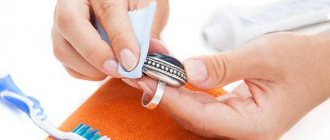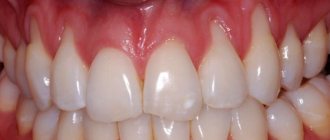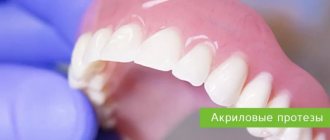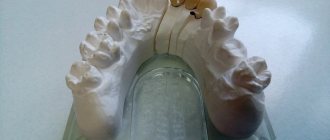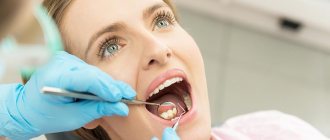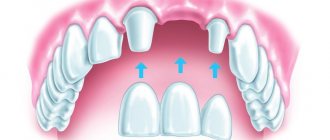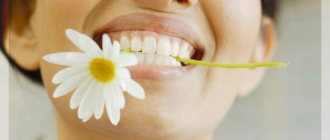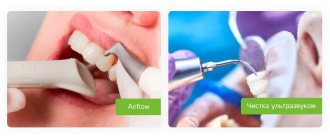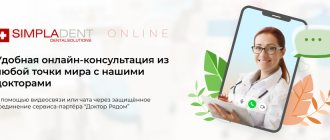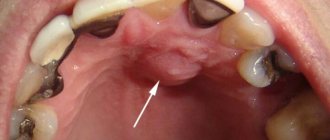20.06.2017
Interesting
We have collected facts about teeth that are truly hard to believe. Some of them could only have happened in Ancient Rome, others could not have happened at all.
All the most unusual things from the world of dentistry: about ancient doctors, the first toothpastes 5000 years ago, unusual advice.
And if we can still assume that soda can whiten teeth, then the rest is hard to believe. We lay out as many interesting facts about dentistry as we can and think about their likelihood.
Each set of teeth is unique
Each person's dentition is unique, just like their fingerprints.
Even if the differences in the distance between teeth in different people are fractions of a millimeter, each tooth has its own size, individual location, shape and a certain distance from neighboring teeth, which makes the dentition as a whole unique. Even two twins do not necessarily have the same dentition, because the formation of teeth is influenced not only by genes, but also by what happened in the first year of the baby’s life. For example, if one of the twins had the habit of thumb sucking, then his dentition will be different from the dentition of his brother or sister. Forensic dentistry is the science that identifies a victim or a criminal by their unique dentition. Specialists use databases with dental prints or x-rays.
Did you know that each person's tongue print is also unique?
Clinical researches
ASEPTA toothpastes are clinically proven effective. For example, it was confirmed that regular use of professional toothpaste ASEPTA COFFEE AND TOBACCO for a month improved the hydration of the mucous membrane by 3.3 times, the remineralizing efficiency increased by 3.9 times, at the same time, the cleansing effect had increasing dynamics and reached 60 .5% at 4 weeks of use.
Sources:
- Clinical and laboratory assessment of the influence of domestic therapeutic and prophylactic toothpaste based on plant extracts on the condition of the oral cavity in patients with simple marginal gingivitis. Doctor of Medical Sciences, Professor Elovikova T.M.1, Candidate of Chemical Sciences, Associate Professor Ermishina E.Yu. 2, Doctor of Technical Sciences Associate Professor Belokonova N.A. 2 Department of Therapeutic Dentistry USMU1, Department of General Chemistry USMU2
- Report on determining/confirming the preventive properties of toothpaste “ASEPTA PLUS” COFFEE and TOBACCO Author: doctor-researcher A.A. Leontyev, head Department of Preventive Dentistry, Doctor of Medical Sciences, Professor S.B. Ulitovsky. First St. Petersburg State Medical University named after. acad. I.P. Pavlova, Department of Preventive Dentistry
- Report on determining/confirming the preventive properties of toothpaste “ASEPTA PLUS” GENTLE WHITENING” Author: doctor-researcher A.A. Leontyev, head Department of Preventive Dentistry, Doctor of Medical Sciences, Professor S.B. Ulitovsky First St. Petersburg State Medical University named after. acad. I.P. Pavlova, Department of Preventive Dentistry
Teeth need saliva
Although saliva cannot replace brushing and flossing, it does serve a protective function.
Saliva helps protect teeth from plaque and also washes away food particles remaining on the surface of the teeth. Bacteria in plaque can lead to tooth decay as well as gum disease. A healthy person's body produces between 0.75 and 1.5 liters of saliva per day, which is about 35,000 liters over a lifetime - enough to fill two swimming pools! But xerostomia (insufficient salivation), a condition that is more common in older people, makes teeth more vulnerable and prone to decay.
Not everyone likes straight teeth
Orthodontics is a branch of dentistry that deals with the correction of uneven teeth and malocclusion.
Wearing braces is especially popular in North America (and many other countries), where people associate a beautiful smile with straight, white teeth. To correct uneven teeth, your dentist may recommend installing veneers on your teeth. Each treatment method has its own pros and cons, which you can learn more about from your doctor. Prices for installing veneers in Moscow vary depending on the material (ceramic or composite veneers), dental clinic, and skill level of the specialist. But straight teeth are not the ideal of beauty in all cultures. For example, in Japan, some people prefer to wear special veneers that make their teeth crooked - many young girls install them on their straight teeth.
Dentists and other specialists
- The very first dentist we know lived in Egypt more than 5,000 years ago. His name was Hesi-Re.
- Ancient Greek healers advised using pumice, talc, alabaster, coral powder or iron rust as toothpaste.
- The ancient Romans used impressive dental technology for their time - they placed gold crowns on their teeth.
- In Rus', sales people strengthened teeth with a medicine made from crushed deer antler and wine, whitened them with gunpowder or salt, and recommended cleaning them with chicken bones, a prototype of toothpicks.
- Due to the lack of professional dentists, until around the 19th century in Europe, teeth were treated mainly by representatives of other professions: bathhouse attendants, jewelers, barbers and even engravers.
“The filling will cost you two thousand rubles.” - “In 10 minutes of work?!” - “If you want, I will work slower.”
Some teeth are very expensive
In 2011, at an auction in the UK, a Canadian dentist bought one of John Lennon's teeth for £19,500 ($30,500).
The buyer hoped to use DNA extracted from the tooth to clone Mr Lennon in the future. In 1816, a tooth said to have belonged to Sir Isaac Newton was also sold in London for £730 ($1,140), equivalent to $35,700 today. It was the most expensive human tooth sold in history.
Unfortunately, these days, the tooth fairy only nets kids an average of $3 per lost baby tooth.
Tooth enamel cannot repair itself
Unlike other organs of the human body, which can repair themselves if they are damaged to a certain extent, teeth do not have this ability. If a piece of a tooth breaks off, only a dentist can help in such a situation. If a tooth is cracked, you may need a filling or dental crown. If the root of the tooth is also affected, root canal treatment will be necessary. The outer layer of teeth, tooth enamel, is not living tissue. For this reason, it cannot recover on its own.
Some people are congenitally missing teeth
Hypodontia (or dental agenesis) is the absence of one or more teeth that were never formed.
The most common case is wisdom teeth, which are missing in 9-35% of people, due to racial factors. With hypodontia, lateral incisors or second premolars may also be missing. Adentia is a very rare disease in which a person is missing all (or several) teeth. The opposite situation is hyperdentia, when extra teeth grow in the mouth, “in addition” to the normal number of teeth.
Today, the problem of missing one or more teeth can be solved using modern prosthetic methods. The dentist will select the optimal method in each specific case, since there are contraindications that need to be taken into account. Dental implantation in Moscow is one of the most popular procedures on the dental services market.
Latest materials
ICON technology
Most of all, the latest materials are in demand, of course, in prosthetics. However, today they play a huge role in dental treatment (in particular, in fillings). Innovative composite materials are used when placing fillings. The use of many of them allows you to simultaneously replace drilling a tooth with a drill and fill voids in damaged tooth tissue. Often, the use of such techniques allows you to perform all the necessary manipulations for the treatment of caries in one visit.
A popular method of such treatment is Icon or liquid filling. Its essence lies in the fact that the light-composite material is applied to a specially prepared diseased tooth and penetrates into its structure. The procedure is repeated 2 times. Hardening of the substance that has impregnated the tooth tissue occurs under the influence of light. This way the affected area is sealed. At the end of the procedure, the tooth is polished, and the filling site becomes indistinguishable on its surface.
A similar technology is used when installing a photo seal. A composite material is also used here, which, under the influence of ultraviolet light, hardens inside the tooth and can take the desired shape. The method is also widely used to restore lost areas of teeth and chips on fillings, as it is durable and allows you to build up any desired volumes layer by layer.
There is a tooth bank in Norway
MoBaTann, or dental biobank, is located in Norway.
Norwegian scientists plan to collect up to 100,000 children's baby teeth. All of these teeth will be the subject of research examining the relationship between environmental pollution and various diseases. It turns out that primary teeth can provide valuable information about the environment and nutrition during fetal development and early childhood. The condition of children's baby teeth is analyzed along with blood and urine samples from their parents. All this information will help provide an understanding of how environmental pollutants affect the health of mothers and children.
Who is the strongest here?
- Here's another fact about the incredible strength of teeth: they can remain in good condition for quite a long time. They are not affected by water, alkali, copper pipes, or even temperatures up to 1000 degrees.
- Our chewing muscles can withstand up to a load of 390 kilograms. This pressure is rare, usually ranging from 9 to 15. The standard chewing pressure can be increased to 100 kilograms if you are trying to chew nuts. But we don’t recommend doing this: be careful with the enamel!
- And now interesting facts about human teeth will be diluted with information about enamel. Its composition is much harder than a bullet, but softer than the material from which cutlery is made. And for starters: 99% of the body's calcium is found in the teeth, which is why they are considered the strongest material in the body.
The most dangerous sport for dental health is hockey.
Contrary to popular belief that the most traumatic sport for the dental system is boxing, statistics claim that 68% of hockey players are injured.
That is, hockey is the most “tooth-dangerous” sport. In boxing, blows in most cases are “softened” by gloves, mouthguards also help to avoid unnecessary injuries, but in hockey - in the event of a blow under the helmet with a puck or stick - there is practically no chance of keeping the dentition intact. Many athletes have to resort to the services of aesthetic dentistry in order to restore not only the aesthetics, but also the functionality of the dentition through the installation of implants or a bridge.
How to keep your teeth healthy until old age? The key to success is consistency
It is not difficult to achieve success in maintaining your health, provided that you deal with this issue not from time to time, but on an ongoing basis. One-time measures are practically useless here, and if you make the rules of care your regular habit, success is guaranteed.
- Rule number one is brushing your teeth daily. At the same time, the task becomes somewhat more complicated - the procedure should last at least three minutes, and its goal should not be a dazzling shine, but a thorough cleaning of the interdental space and the most inaccessible places where food debris accumulates.
- Taking care of your teeth after eating is just as important as washing your face in the morning. It is important to choose the right toothpaste. Rinsing with clean water or a weak saline solution will help completely remove food particles and make your mouth cleaner.
- Changing a toothbrush is not only a matter of cleaning quality, but also of your personal hygiene. In a humid environment, many bacteria accumulate inside the bristles, which “like” to live in the oral cavity. Only replacing the brush will protect you from their intervention and at the same time qualitatively improve the cleaning process due to the good stiffness of the bristles.
- A competent approach to choosing a brush. The priority here is for models of medium hardness, which effectively clean the teeth and do not injure the gum tissue. A bias towards excess hardness or softness can cause bleeding of the mucous membrane or make cleaning practically useless.
- An electric brush is a minimum of risk, maximum of convenience and excellent quality of the process - your smile will captivate others with its impeccable appearance, and visits to the dentist will become only preventative.
- Chewing gum: when image is nothing, and the desire to maintain healthy teeth is everything. If you don’t have a toothbrush at hand and you’ve just had a snack, use chewing gum, which will easily cleanse your mouth of food debris and restore freshness to your breath.
- Dental floss. Simple, fast, safe and very effective when it comes to removing coarse food residues that cause significant inconvenience.
- Rinsing is the best way to prevent or slow down the development of oral inflammation and freshen your breath. Choose the appropriate antibacterial composition and remember to use it with the recommended frequency to experience the pleasant effect of freshness.
- Using fluoride toothpaste, especially recommended for smokers. If you are not yet able to give up this habit, make sure that it causes minimal harm to your teeth. In the ASEPTA line this is the ASEPTA PLUS Coffee and Tobacco paste. The chemical composition is selected in such a way as to strengthen tooth enamel and improve its appearance, while promoting its mineralization and freshening breath.
- Changing toothpaste is not just an opportunity to test the effectiveness of different dental products, but also the best chance to cope with microbes that quickly get used to the composition of the paste and do not respond to its action. By giving preference to ASEPTA pastes, you will provide your teeth and gums with professional care at home, which will have the most positive effect on their health.
And, of course, visit the dentist at least once every six months. Only in this case will it be possible to recognize and eliminate a serious disease in time, preserving the integrity of the dentition and avoiding long, painful and expensive treatment.
In China about
In addition, in China there is a special holiday - “Love Your Teeth Day”, which takes place on September 20th. This day was first celebrated in 1989. In this way, the state decided to attract people's attention to issues of dental health and proper oral care.
The Russian-American clinic “US Dental Care” in Moscow specializes in a wide range of dental services - from ultrasonic cleaning, teeth whitening, aesthetic dentistry to complex surgical operations, implantation and dental prosthetics. For young patients, there is a pediatric dentistry department, where children are provided with a special approach taking into account age-related psychology. American dentistry is conveniently located in the center of the capital on Olimpiysky Prospekt (metro Prospekt Mira, Dostoevskaya). The elite dental clinic is equipped with the latest modern equipment, and a team of highly qualified dentists regularly undergo internships in America and improve their professional level.
The article was written using primary source materials https://www.studiodentaire.com/articles/en/10-things-you-didnt-know-about-teeth.php
Dry mouth encourages bacterial growth
Look
Source:
Saliva is not a particularly pleasant thing, but it is useful for the oral cavity. It helps neutralize acid and prevents the accumulation of bacteria.
